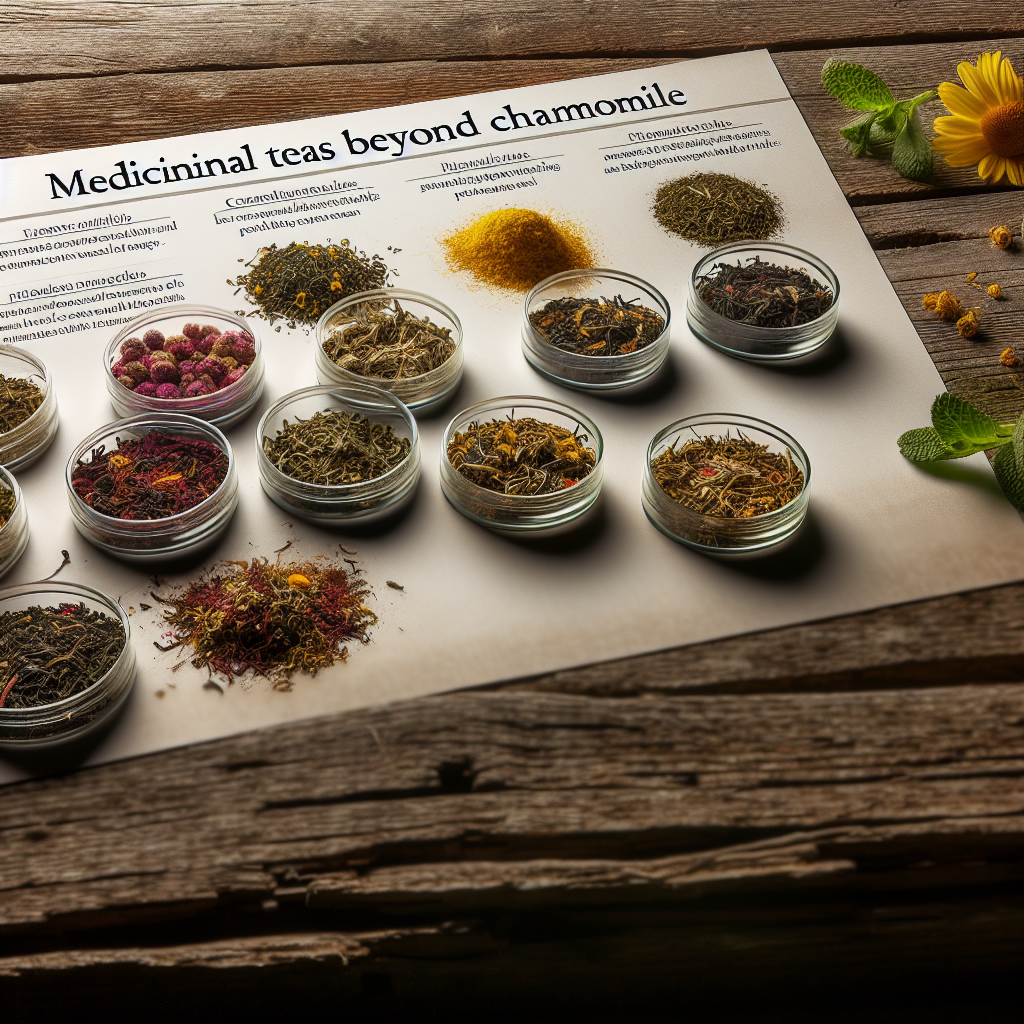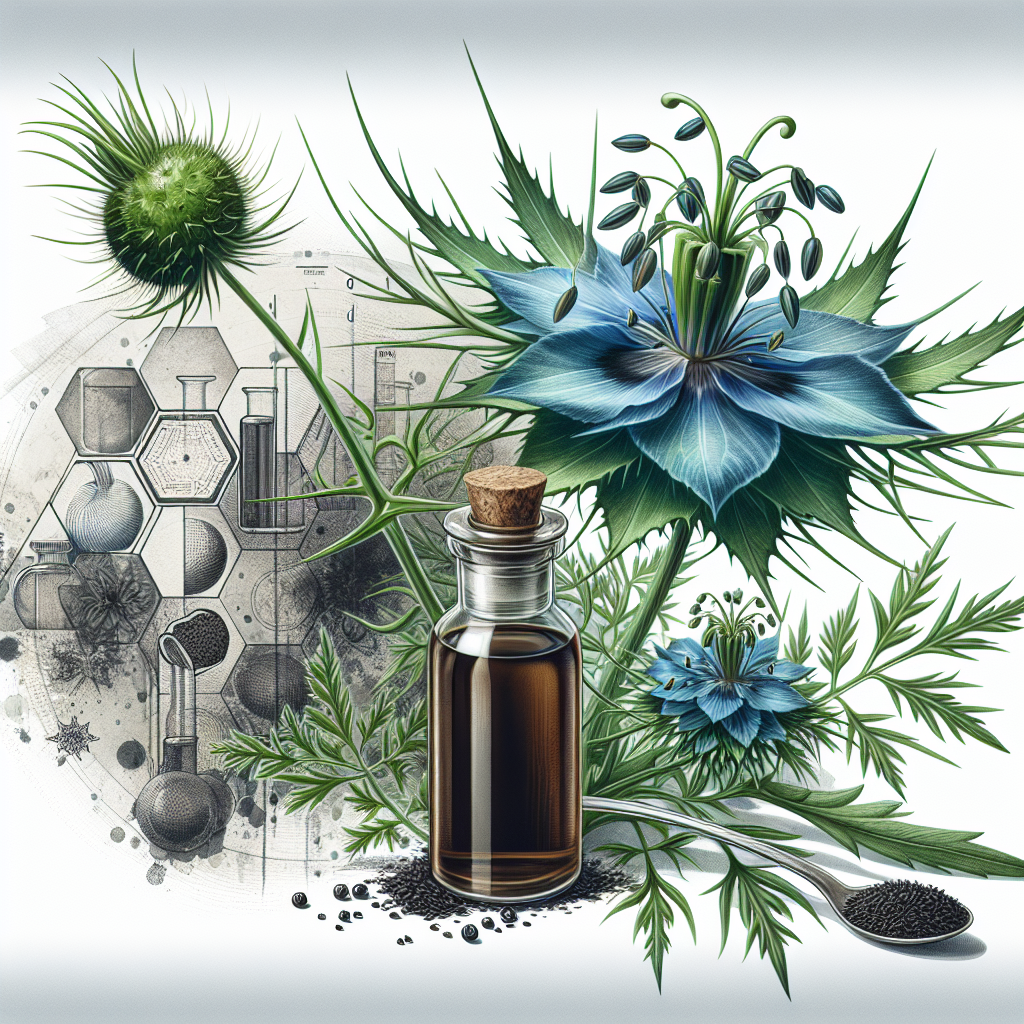Medicinal Teas Beyond Chamomile: Clinical Evidence for 12 Therapeutic Brews
Introduction: Unlocking the Healing Power of Herbal Teas
For centuries, medicinal teas have played a critical role in holistic wellness, offering natural and homeopathic alternatives to conventional treatments. While chamomile remains a household name for relaxation and sleep support, a wide array of therapeutic teas exist beyond chamomile, each possessing unique healing benefits backed by science. Today, more consumers are turning to herbal and botanical brews as adjuncts to medical treatments, motivated by emerging research and clinical evidence supporting their efficacy.
Herbal teas, or tisanes, are made by steeping plants, flowers, roots, seeds, or bark in hot water. Unlike traditional teas derived from the Camellia sinensis plant (such as green or black tea), herbal infusions offer a caffeine-free experience while contributing valuable nutrients and bioactive compounds to the body. These natural compounds, including polyphenols, flavonoids, and essential oils, exhibit antioxidant, anti-inflammatory, antimicrobial, and adaptogenic properties that can support various bodily functions.
Modern medicine is beginning to acknowledge the therapeutic impact of these teas, with multiple clinical studies now investigating their effectiveness in treating conditions such as digestive issues, anxiety, inflammation, metabolic disorders, and immune dysfunction. From hibiscus lowering blood pressure to ginger aiding digestion, scientific exploration continues to validate the wisdom of ancient herbal remedies.
In this article, we will explore 12 powerful medicinal teas, supported by clinical research, that offer natural solutions for common health concerns. Whether you seek to boost your immune system, enhance cognitive function, manage stress, or regulate blood sugar levels, these medicinal brews provide a gentle yet effective approach to wellness.
Understanding the scientific backing behind these teas ensures informed decisions about integrating them into your health regimen. Join us as we delve into the fascinating world of botanical brews, moving beyond chamomile and uncovering the clinical benefits of nature’s most potent herbal infusions.
The Science Behind Medicinal Teas: What Research Says
Scientific and medical interest in medicinal teas has grown significantly, with many studies validating the anecdotal claims of their health benefits. Below are several research-backed findings on herbal infusions:
1. Hibiscus Tea: A Natural Remedy for High Blood Pressure
A study published in The Journal of Nutrition found that hibiscus tea can lower blood pressure in pre-hypertensive and mildly hypertensive adults. Researchers concluded that the anthocyanins and polyphenols in hibiscus contribute to its blood-pressure-lowering effects.
Source: The Journal of Nutrition (2009)
2. Ginger Tea: A Soothing Solution for Digestive Health
Clinical trials have demonstrated that ginger tea alleviates indigestion, nausea, and bloating. A 2019 review in Food Science & Nutrition confirmed that ginger accelerates gastric emptying, making it useful for digestive disorders.
Source: Food Science & Nutrition (2019)
3. Turmeric Tea: A Potent Anti-Inflammatory Elixir
Curcumin, the active compound in turmeric tea, has been extensively studied for its anti-inflammatory and antioxidant properties. A meta-analysis in Journal of Medicinal Food found that curcumin supplementation significantly improves symptoms of arthritis and inflammatory disorders.
Source: Journal of Medicinal Food (2016)
4. Peppermint Tea: A Gentle Relief for IBS Symptoms
A randomized controlled trial published in Digestive Diseases and Sciences concluded that peppermint tea eases IBS symptoms due to its antispasmodic effects on the digestive tract.
Source: Digestive Diseases and Sciences (2014)
5. Rooibos Tea: Fighting Oxidative Stress and Aging
A study in Oxidative Medicine and Cellular Longevity suggests that rooibos tea’s high flavonoid content combats oxidative stress, potentially slowing down aging-related cellular damage.
Source: Oxidative Medicine and Cellular Longevity (2013)
6. Echinacea Tea: Boosting the Immune System Naturally
Published research in The Lancet Infectious Diseases supports echinacea tea’s potential to shorten the duration of colds by stimulating the immune system’s response to pathogens.
Source: The Lancet Infectious Diseases (2014)
7. Green Tea: Enhancing Brain Function and Focus
A meta-analysis in Phytomedicine found that green tea consumption improves brain function, particularly attention and memory, due to its high L-theanine and catechin content.
Source: Phytomedicine (2018)
8. Valerian Root Tea: A Natural Sleep Aid
In a systematic review published in The American Journal of Medicine, researchers found valerian root tea to be a natural sleep aid, improving sleep latency and quality.
Source: The American Journal of Medicine (2006)
9. Nettle Tea: A Natural Antihistamine for Allergy Relief
A 2017 study in Phytotherapy Research suggests that nettle tea acts as a natural antihistamine, reducing symptoms of hay fever and seasonal allergies.
Source: Phytotherapy Research (2017)
10. Dandelion Tea: Supporting Liver Health and Detoxification
Research in The Journal of Ethnopharmacology highlights dandelion tea’s liver-protective properties, particularly its role in supporting detoxification.
Source: Journal of Ethnopharmacology (2010)
11. Ashwagandha Tea: Reducing Stress and Anxiety
Studies, including a trial published in Medicine (Baltimore), show that ashwagandha-infused tea significantly lowers cortisol levels, helping in stress management.
Source: Medicine (Baltimore) (2019)
12. Cinnamon Tea: Regulating Blood Sugar Levels
A clinical trial in Diabetes, Obesity and Metabolism found that daily consumption of cinnamon tea helps regulate blood sugar levels, making it beneficial for individuals with type 2 diabetes.
Source: Diabetes, Obesity and Metabolism (2013)
Conclusion: The Case for Herbal Teas in Modern Wellness
Medicinal teas provide a time-honored yet scientifically supported approach to wellness, harnessing nature’s power to promote healing and balance. As research continues to explore the clinical benefits of herbal infusions, it is clear that these botanical brews hold therapeutic potential beyond traditional uses. Their ability to improve digestion, support cognitive function, manage stress, and enhance systemic health makes them an appealing addition to any wellness routine.
While herbal teas offer a natural and complementary approach, it is essential to consult a healthcare professional before integrating them into any medical treatment plan, particularly for those with existing conditions or who are on medication. By embracing scientifically backed botanical remedies, we can foster a more holistic approach to health, bridging the wisdom of traditional medicine with modern scientific validation.
Summary:
Medicinal teas provide a scientifically supported approach to wellness, offering natural solutions for common health concerns such as high blood pressure, digestive issues, inflammation, and immune dysfunction. The article explores 12 powerful medicinal teas backed by clinical research, including hibiscus, ginger, turmeric, peppermint, and more. These botanical brews hold therapeutic potential beyond traditional uses, making them an appealing addition to any wellness routine when integrated under the guidance of a healthcare professional.

Dominic E. is a passionate filmmaker navigating the exciting intersection of art and science. By day, he delves into the complexities of the human body as a full-time medical writer, meticulously translating intricate medical concepts into accessible and engaging narratives. By night, he explores the boundless realm of cinematic storytelling, crafting narratives that evoke emotion and challenge perspectives.
Film Student and Full-time Medical Writer for ContentVendor.com




